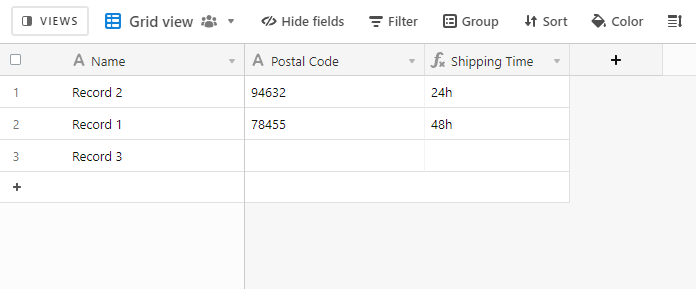Hello Community,
I need your help.
Some postal code is delivery in 24h and the other in 48h.
I need to create a formula.
If the postal code (on the column B) start by 94,92,91…, write 24h, if not write 48h.
Can you help me please ?
Thank’s,
Matthieu



